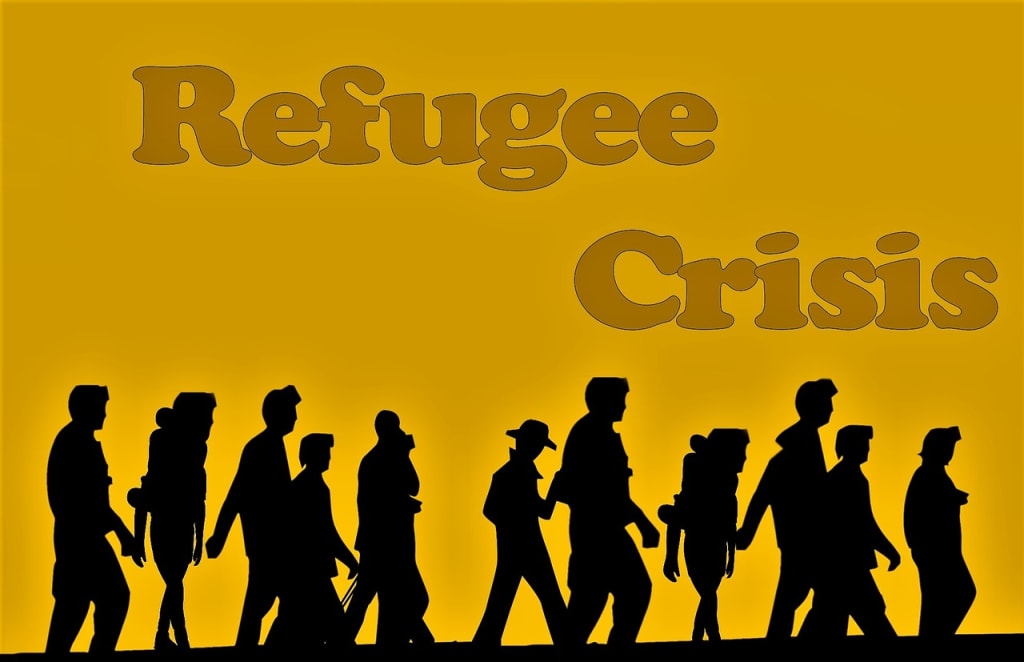
Ongoing conflicts, political instability, and natural disasters have contributed to a significant global refugee crisis. Countries are grappling with the challenges of accommodating and providing support to displaced populations, while international organizations strive to address the root causes and facilitate humanitarian aid.
Refugee Crisis:
The ongoing refugee crisis continues to be a pressing global issue, with millions of people displaced from their homes due to conflict, persecution, and other factors. Here are some current news highlights regarding the refugee crisis:
Afghan Refugee Crisis: The withdrawal of international forces from Afghanistan has triggered a significant humanitarian crisis, with thousands of Afghans seeking refuge in neighboring countries and beyond. The Taliban's return to power has led to widespread fear and uncertainty, prompting a surge in Afghan asylum seekers in various regions of the world.
Syrian Refugee Crisis: The protracted conflict in Syria has resulted in one of the largest displacement crises in recent history. Millions of Syrians have fled the violence and sought refuge in neighboring countries, such as Turkey, Lebanon, Jordan, and Iraq, as well as in Europe. The humanitarian situation remains dire, with ongoing challenges related to access to basic necessities, healthcare, and education for Syrian refugees.
Rohingya Refugee Crisis: The plight of the Rohingya people in Myanmar has drawn international attention and concern. Violence and persecution by the Myanmar military have forced hundreds of thousands of Rohingya Muslims to flee to neighboring Bangladesh. The overcrowded refugee camps in Bangladesh face significant challenges in providing adequate shelter, healthcare, and sanitation to the Rohingya population.
Venezuelan Refugee Crisis: The economic and political crisis in Venezuela has led to a large-scale exodus of Venezuelans seeking better opportunities and safety in neighboring countries, particularly Colombia, Peru, Ecuador, and Brazil. The influx of Venezuelan refugees has put significant strain on host countries' resources and infrastructure, necessitating international assistance and support.
Mediterranean Migrant Crisis: The perilous journey of migrants and refugees crossing the Mediterranean Sea in overcrowded and often unseaworthy vessels continues to claim numerous lives. European countries, particularly those bordering the Mediterranean, have been grappling with the humanitarian and political challenges of managing the influx of migrants and refugees, with efforts focused on search and rescue operations, relocation, and addressing the root causes of migration.
Rohingya Repatriation Efforts: Efforts to repatriate Rohingya refugees from Bangladesh to Myanmar have faced significant challenges. Concerns about the safety and security of returning Rohingya and the lack of guarantees for their rights and protection have hindered the repatriation process. The international community continues to advocate for a sustainable and voluntary repatriation solution that ensures the safety and well-being of the Rohingya population.
Humanitarian Response and International Cooperation: The refugee crisis requires a coordinated and comprehensive humanitarian response from governments, international organizations, and civil society. Efforts to provide shelter, food, healthcare, education, and psychosocial support to refugees are ongoing. International cooperation and burden-sharing are crucial to address the scale and complexity of the crisis and ensure the protection and well-being of displaced populations.
Legal and Policy Frameworks: The protection and rights of refugees are governed by international legal frameworks, including the 1951 Refugee Convention and its protocols. Countries are grappling with the need to update and strengthen their national asylum policies to address the evolving nature of displacement and provide appropriate support to refugees and asylum seekers.
The refugee crisis remains a significant challenge, requiring sustained efforts to address the root causes of displacement, provide humanitarian assistance, and support durable solutions, including voluntary repatriation, local integration, and resettlement. It is essential for the international community to work together to address the immediate needs of refugees, uphold their rights, and seek long-term solutions that promote stability, peace, and human dignity for all those affected by the crisis.
In conclusion, the global refugee crisis remains a pressing issue that demands urgent attention and comprehensive solutions. The displacement of millions of people due to conflict, persecution, and other factors continues to strain resources, infrastructure, and humanitarian systems in countries across the world.
From the Afghan refugee crisis triggered by the withdrawal of international forces to the protracted conflicts in Syria and Myanmar, the plight of refugees is a stark reminder of the human suffering and the need for effective international responses.
The challenges posed by the refugee crisis require a multifaceted approach. This includes providing immediate humanitarian assistance, such as shelter, food, healthcare, and education, to address the urgent needs of displaced populations. Furthermore, efforts to address the root causes of displacement, promote conflict resolution, and ensure the protection of human rights are crucial in addressing the underlying factors contributing to the crisis.
International cooperation and burden-sharing play a pivotal role in managing the refugee crisis. It is essential for governments, international organizations, and civil society to work together, share responsibilities, and provide support to countries hosting large numbers of refugees. Collaboration among countries is necessary to develop sustainable solutions, facilitate safe and orderly migration pathways, and uphold the rights and dignity of refugees and asylum seekers.
Moreover, it is important to recognize that refugees bring resilience, skills, and cultural diversity to their host communities. By embracing their contributions and fostering social inclusion, societies can harness the potential of refugees and promote a more inclusive and cohesive society.
Addressing the refugee crisis requires long-term commitment and sustained efforts. The international community must continue to advocate for the protection of refugees, support host countries, and strive for political solutions to conflicts. By addressing the root causes, upholding humanitarian principles, and fostering solidarity, we can work towards a future where displacement is minimized, and the rights and well-being of all individuals are upheld.
Ultimately, the refugee crisis is a humanitarian challenge that tests our collective humanity and our ability to respond with compassion, empathy, and effective action. By working together, we can create a world where refugees are welcomed, protected, and given the opportunity to rebuild their lives in safety and dignity.





Comments
There are no comments for this story
Be the first to respond and start the conversation.